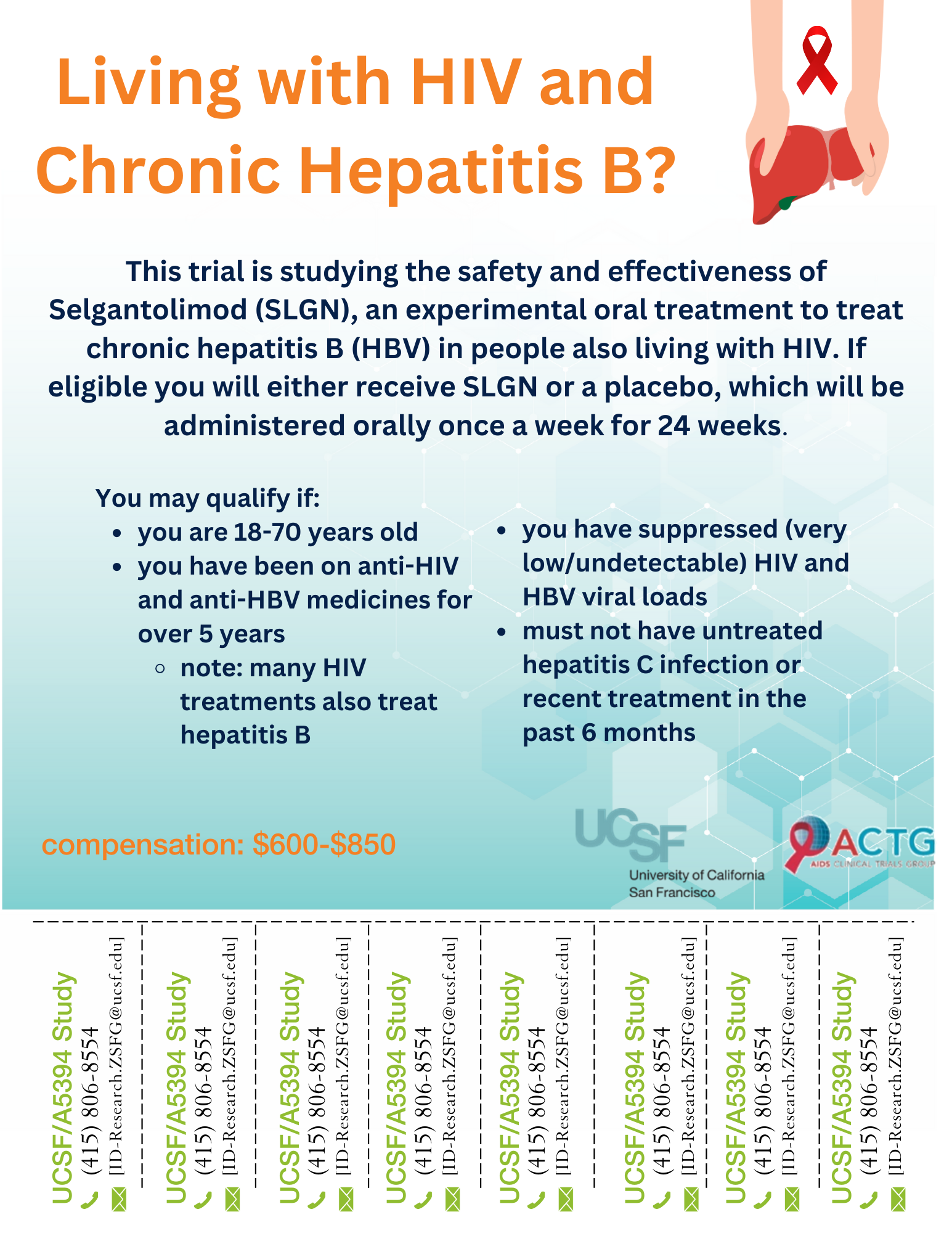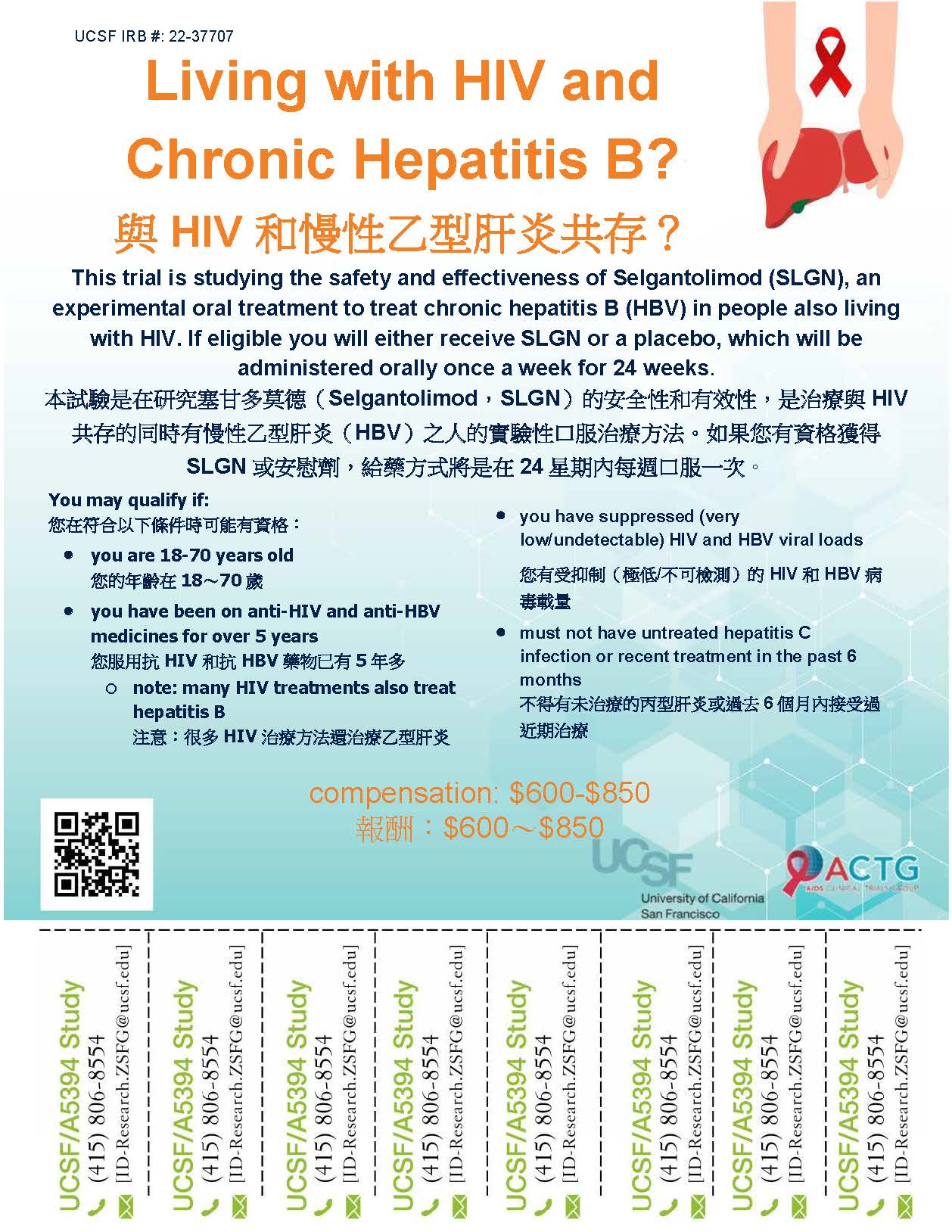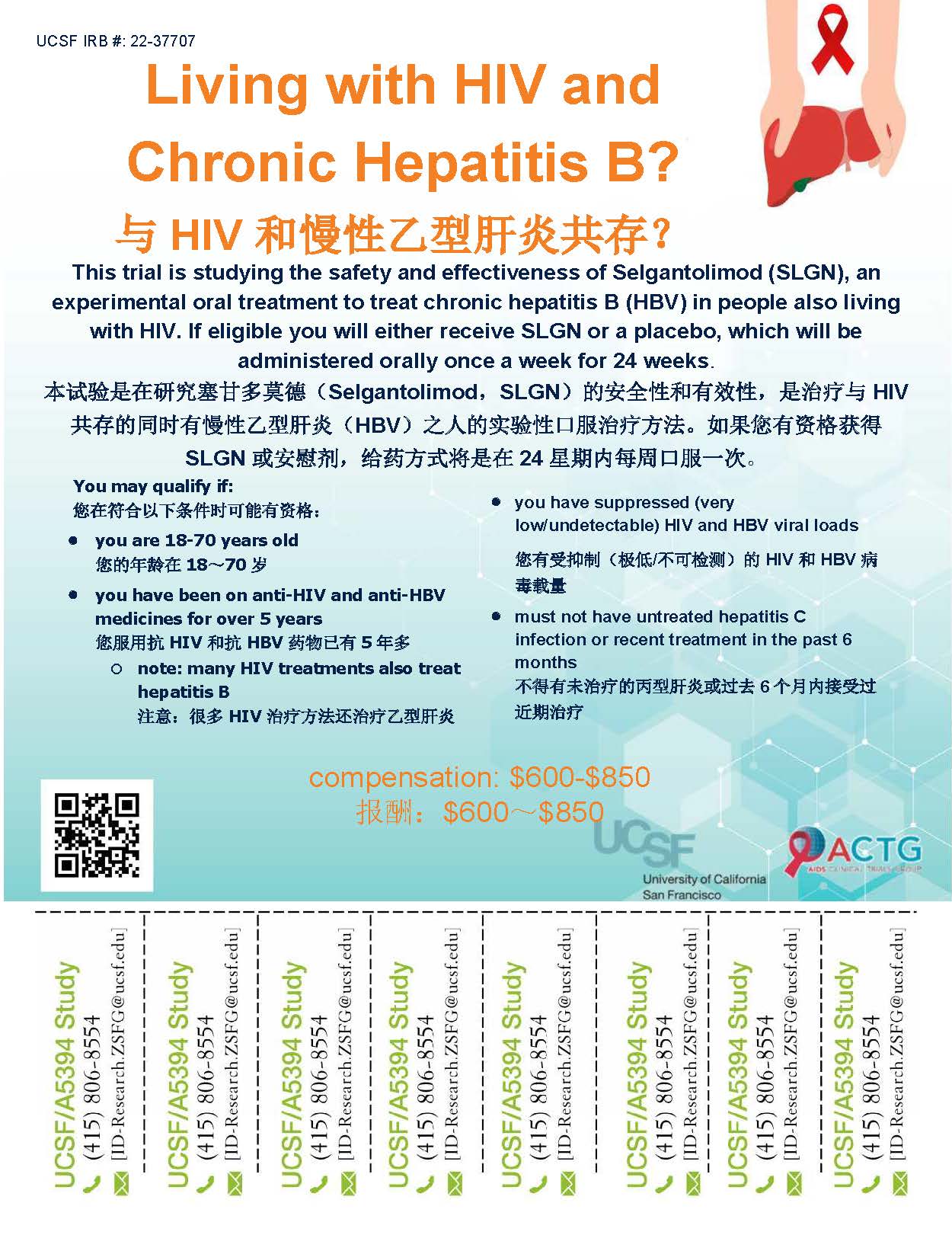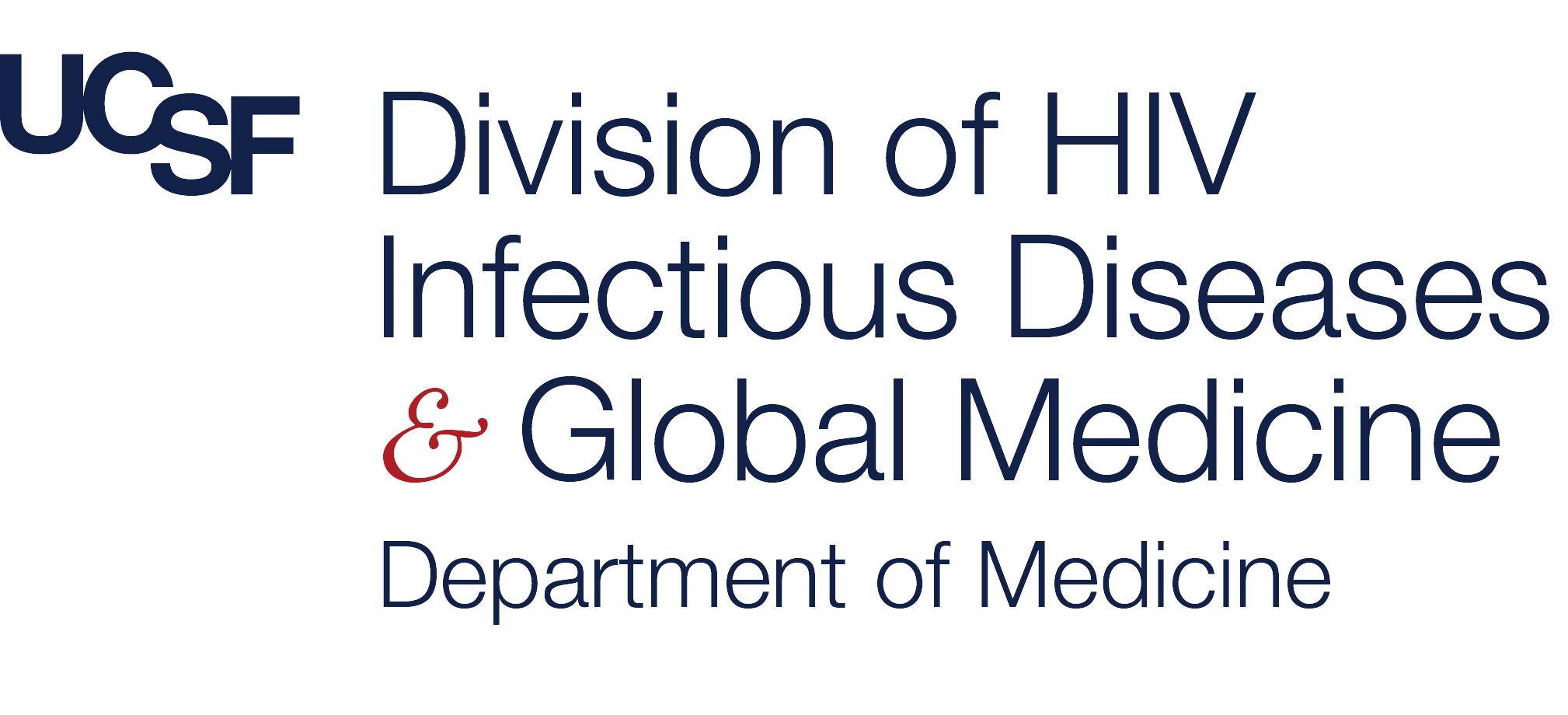Safety, Tolerability, and Impact of Oral TLR8 Agonist Selgantolimod on HBsAg in Participants with Both Chronic Hepatitis B and HIV



Brief Description:
Selgantolimod (SLGN) is an experimental drug that is given to patients with Chronic Hepatitis B (CHB) to try to prevent progression and reverse disease.
This study will have two groups: those who will receive SLGN and those who will receive placebo for SLGN. It will assess how safe and tolerated treatment with SLGN or placebo for SLGN administered once weekly by mouth for 24 weeks (about 5 and a half months) is. It will also assess the amount of hepatitis B surface antigen (HBsAg) in a person's blood during and after 24 weeks (about 5 and a half months) of treatment with SLGN or placebo for SLGN. HBsAg is an important test that shows active infection with hepatitis B virus (HBV) and helps in the prediction of the clinical outcome and management of HBV without HIV. SLGN has been found to induce a functional cure (loss of HBsAg) in some people in preclinical studies.
SLGN has been investigated in people with chronic HBV without HIV and found to be safe. The safety, tolerability and effect of SLGN on the amount of HBsAg when given over 24 weeks (about 5 and a half months) in persons living with Human Immunodeficiency Virus (HIV) and CHB is currently unknown.
Purpose of study:
This study intends to establish the safety profile, tolerability, and effect on amount of HBsAg in a participant’s blood when given over 24 weeks (about 5 and a half months) in persons living with Human Immunodeficiency Virus (HIV) and CHB.
Major requirements for entering the study (things that must be true for you):
-
Be a person with HIV aged 18 years and ≤70 years at study entry.
-
Be on an antiretroviral therapy (ART) regimen for HIV and HBV, or entecavir, for ≥5 years immediately prior to study entry and willing to stay on it throughout the study.
-
Be diagnosed with CHB, defined as HBsAg positive in the blood on at least 2 occasions. The earliest positive HBsAg must be obtained at least 24 months (about 2 years) prior to study entry and the latest within 45 days (about 1 and a half months) prior to study entry.
-
Have a hepatitis C virus (HCV) antibody negative result within 45 days (about 1 and a half months) prior to study entry or if antibody positive, an undetectable HCV RNA result within 45 days (about 1 and a half months) prior to study entry.
-
Have no evidence suggestive of hepatocellular carcinoma (HCC) within 45 days (about 1 and a half months) prior to study entry based on abnormal laboratory results. Have no evidence of HCC on abdominal imaging obtained within 24 weeks (about 5 and a half months) prior to study entry.
-
Have no evidence of liver cirrhosis based on FIB-4 test.
-
Have negative test result for COVID-19 infection for a sample collected within 7 days prior to study entry.
-
Have a negative pregnancy test within 2 days prior to study entry for participants of reproductive potential who can become pregnant.
-
Have started using at least 1 form of contraception at least 45 days prior to study entry for participants of reproductive potential who can become pregnant and must agree to use two forms of contraception until 7 days after the last dose of study product.
-
Agree to use condoms during study treatment and until 7 days after the last dose of study product if you are a fertile male with sexual partners who can become pregnant when participating in sexual activity that could lead to pregnancy.
-
Agree to refrain from egg donation and in vitro fertilization during study treatment and until 7 days after the last dose of study product.
-
Agree to refrain from sperm donation during study treatment and until 7 days after the last dose of study product.
-
Be able and willing with study procedures, including technology-based directly observed SLGN dosing.
-
Be able and willing to provide informed consent.
Events or conditions that would prevent you from participating (things that cannot be true about you):
-
Received treatment for HCV within 24 weeks (about 5 and a half months) prior to study entry.
-
Received oral hormonal contraceptives within one month before study entry.
-
Taking an antiretroviral regimen that includes atazanavir, ritonavir, cobicistat, efavirenz, etravirine, or nevirapine.
-
Evidence of advanced fibrosis or cirrhosis.
-
No history of hepatocellular carcinoma (HCC) or cholangiocarcinoma.
-
Malignancy within 5 years prior to study entry except for a history of non-melanoma skin cancer (e.g., basal cell carcinoma or squamous cell skin cancer).
-
History of solid organ transplantation.
-
Presence of any active or acute AIDS-defining opportunistic infections within 45 days (about 1 and a half months) prior to study entry.
-
History of uveitis or posterior synechiae.
-
Breastfeeding.
-
Unexplained acute symptoms of fever, shortness of breath, cough, and/or anosmia potentially related to COVID-19 infection within 7 days prior to study entry.
-
Received an influenza vaccine within 14 days prior to study entry.
-
Received a COVID-19 vaccine or booster vaccine within 30 days prior to study entry.
-
Known allergy/sensitivity or any hypersensitivity to components of study drug or its formulation.
-
Active substance use or dependence that, in the opinion of the site investigator, would interfere with adherence to study requirements.
-
Serious illness requiring treatment with injectable medicines and/or hospitalization within 45 days prior to study entry.
Intervention:
Selgantolimod 3 mg or matching Placebo for Selgantolimod will be administered as two 1.5 mg tablets orally once weekly on an empty stomach. The two tablets should be taken on the same day at the same time each week and must be administered in a fasted state. Participants should not eat or drink anything for at least 8 hours before administering dose and must continue fasting (no food or drink) for an additional 4 hours after dose administration. Fasting will be self-reported by the participant. Water is allowed up to 1 hour before dosing and 2 hours after dosing, however, participants may administer the dose orally with water as needed.
Participants should take other prescribed medications, including ARV treatment, no earlier than 2 hours after administration of Selgantolimod or Placebo for Selgantolimod. If medications are recommended to be dosed with food, administer dose at least 4 hours after Selgantolimod or Placebo for Selgantolimod dosing.
Required background ART and HBV regimens will not be provided by the study.
Duration of Study:
Participants will be on study treatment for 24 weeks (about 5 and a half months) and will be followed-up on study off study treatment (SLGN) for another 24 weeks.
Contact information:
Clinical Research Coordinator: Daniel Berrner
Email: [email protected]
Phone number: 415-806-8554
